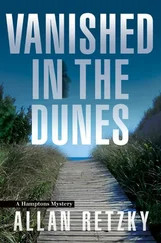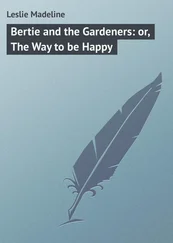He stopped and attached the close-up lens so he could photograph a particularly profuse spike of red-orange blossoms of a Laelia cinnabarina that appeared to grow out of solid granite on the side of the ridge. He was glad the monkey had not found this specimen. As he viewed the orchid flower through the close-up lens, he savored the sublime, luminous glow from the profuse orange-red blossoms that resembled shooting stars. He made exposures of each subject, careful to double-check the lens setting for perfect photographs.
They had agreed they must start back at five; Edward checked his watch and glanced back down at his companions, white specks far below. He had another hour to make photographs and he wanted to make the most of the opportunity because he had not made as many photographs of the wild orchids as he originally hoped. Here the light was lovely, but the steep terrain required numerous adjustments to each leg of the tripod before the camera was level. After the exposure he carefully repacked each glass plate in its padded slot in the camera box. He was so immersed in making photographs he lost sight of the antlike figures of his companions on the riverbank.
He was near the top of the granite ledge with the river hundreds of yards below when he stopped to change lenses for a wide-angle view of the granite cliff face with hundreds of wild orchids in flower. The subtle fragrance of hundreds of orchid blossoms wafted in the cool air rising off the mist from the river. As he attempted to focus the image on the camera’s ground glass, he noticed the first gray feather of smoke, followed by another and another. He stepped back from the camera, unable to believe what he saw, when suddenly a greasy black ball of smoke rolled into the sky followed by spidery blossoms of red-orange flame.
This was the dry season, but the forest floor and the lianas and mosses were still moist and green. How could a wildfire break out? He felt the hair on his neck bristle as the plumes of smoke rose higher. Where were Eliot and the Frenchman? Edward quickly removed the lens board and film holder; he shut the camera and replaced it in its box. He slipped the carrying strap over his right shoulder and carried the folded tripod over his left shoulder. He made his way down the slope as quickly as he could. He still did not see his companions, but he saw the canoe safe on the riverbank.
The fire spread quickly and he could hear the birds and parrots screech out alarms. He was beginning to feel winded but he pushed himself on because he feared the flames might cut off his path to the canoe. He regretted the bulk of the camera box and the tripod on the steep slope of rotting granite where the footing was treacherous. The ridge was formed by folds of rock that made terraces and ledges, so the path down to the river, though steep, was not difficult to follow. He stopped again to search, in vain, for a glimpse of his companions.
Edward made his way down the granite ridge cautiously despite his fear of the fire. He was more than two-thirds of the way down the slope when he paused to catch his breath and adjust the camera box and tripod. It was then he saw a strange sight: Mr. Eliot was running madly along the riverbank with his knapsack in one hand, spilling the contents of a bottle over the shrubbery with the other hand. When one bottle was emptied he threw it down and reached into the knapsack for another. For an instant, Edward was confused; he thought Eliot was dumping his precious rum; but when he saw the greasy black flames rise into the trees behind his companion, Edward realized the liquid Eliot splashed over the ground and shrubs was lamp oil, not rum.
Edward began to shout at Eliot, who was too far away to hear; the flames were spreading, and Edward realized the fire had cut off his only path to the canoe. He shouted, but the roar of the fire drowned out everything; he gamely held on to the camera box and used the tripod as a walking stick, but suddenly he lost his footing and fell. He did not lose consciousness during the fall, and he never forgot the odd sensation of weightlessness as he fell — quite strange but not unpleasant. He might have escaped this misadventure with only minor cuts and bruises, but the camera box fell against the leg on the rock with a terrible crunching sound. Shattered bone pierced the skin; blood soaked the leg of his trousers, but he felt only the great weight of the numb limb pulling him down as he leaned on the camera box to call out again and again for Eliot and for the Frenchman. Surely they would come to find him when he did not return to the canoe.
Now the fire, fueled by the natural oils of the jungle trees and shrubs, exploded ahead of the flames and sent geysers of fire into the sky. He managed to drag himself into a rock cranny between two boulders just before the wall of flames flashed up the ridge.
The pain woke him from a dream that his leg was burning; in the fading darkness before dawn, bright orange coals still glowed and occasionally flames flared behind the thin veils of white smoke that rose from the legions of blackened tree trunks and the gray skeletons of tree ferns and shrubs. He listened for some sound that might indicate his companions were nearby. He called out their names again and again until the pain in his leg made him feel nauseous and faint.
When he woke again, the sun was just above the horizon. He pulled himself up so he could survey his position; he had come down the ridge and was within a hundred yards of the river below when he fell. The blackened jungle was silent and motionless and Edward felt a chill of horror spread over him: the sunny river’s-edge habitat of the lovely Laelia and their kinsmen the Cattleya and Brassavola now lay in ashes.
Nausea swept over him and a cold sweat broke over his body as he recalled his initial misgivings about Eliot and Vicks. Was Vicks with his contraband Hevea seedlings a part of this scheme as well? How careless of Mr. Albert and Lowe & Company to allow the investors to interfere, though surely they had no idea of the true nature of Mr. Eliot’s mission. Now it was clear: Eliot’s only purpose on the expedition was the fire; the fire had been planned months before by the investors, who wished to make certain they possessed the only specimens of Laelia cinnabarina . They wanted no unpleasant surprises from rivals to drive down the price of the Laelia cinnabarina . Rival hybridizers would be stymied when they sent out their plant collectors now that this Pará River site was destroyed. Habitats for the Laelia and Cattleya had been disappearing rapidly since the early forties. Now orchid hunters would be forced to go even farther up estuaries too overgrown and narrow even for canoes, where only a few specimens might be found.
As he descended the ridge, he lost sight of the canoe on the riverbank. Surely the Frenchman had seen the smoke and escaped the flames. The fire might have driven them away temporarily, but they would return to search for him as soon as possible. He had suspected Eliot was a scoundrel from the start, but he believed he could rely on Mr. Vicks, who, after all, was affiliated with the Kew Gardens.
Anger suffused his body, and the pain receded. This was an outrage! At the very least, Lowe & Company badly misused him by sending him out with that criminal Eliot; at worst, they had betrayed him, and now the criminals had left him for dead! He was used as a decoy in the service of scoundrels, though he did not see Vicks in quite the same light because he smuggled the disease-resistant seedlings for a noble purpose.
The fire burned the dry sunny exposures preferred by the Cattleya and Laelia but burned itself out once it reached the deeply shaded damp foliage. The jungle canopy, untouched by fire, came alive as the sun rose above it; the screeching and calling of the parrots and macaws rose to a crescendo, then gradually receded as the morning got hotter. Surely Mr. Vicks would insist search parties be sent out as soon as it was daylight. Edward knew he had to reach the riverbank or his rescuers would never see him on the hillside or hear his voice over the noise of the rushing water.
Читать дальше












